
Raj Bhopal, BSc MD, MPH, addresses the nuances of competing ethical priorities societies face amid COVID-19, alongside political battles and terms like “herd immunity.”

Raj Bhopal, BSc MD, MPH, addresses the nuances of competing ethical priorities societies face amid COVID-19, alongside political battles and terms like “herd immunity.”

RLF-100 is an investigational therapy granted an FDA IND this week and looks to treat moderate and severe cases of COVID-19.

Patrick Soon-Shiong and Dr. Adam Brufsky have an open minded discussion on the dangers and potential lessons of the course Swedish health officials recommended the country take over the SARS-CoV-2 pandemic.

Peter Hotez, MD, PhD, discusses the need to take a grounded approach when discussing plans for the introduction of vaccine immunity against COVID-19.

Dr. Patrick Soon-Shiong, CEO of ImmunityBio, initiates a conversation on the nature of the SARS-CoV-2 cytokine storm.
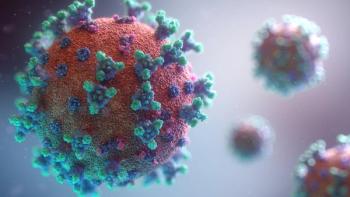
Adam Brufsky, MD, explains the insights years of research into SARS-CoV-1 may hold for SARS-CoV-2.
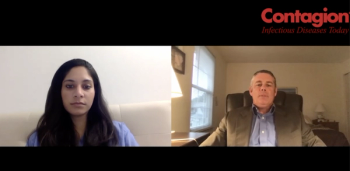
A New York City cardiologist talks about the presentation of patients with severe COVID-19 who experienced this condition.

Medha Munshi, MD, discusses the specific challenges of the quarantine and how she was able to help her patients with diabetes comply with their care.
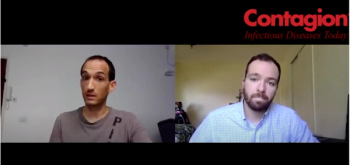
What role does new research play in combating public vaccination concerns?

Peter Hotez, MD, PhD, recently authored a paper proposing a federally directed but state-adaptive reopening that aims for acceptable national suppression by October 1.
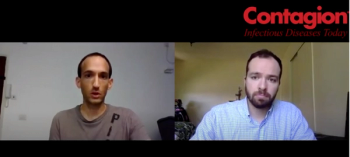
A discussion on the process by which the FDA regulates vaccine candidates at a time when COVID-19 candidates are progressing.
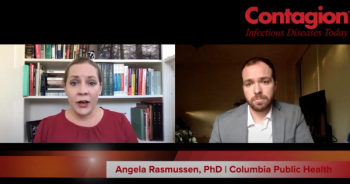
Why reducing pandemic research and response to yes-or-no outcomes is harming public health.
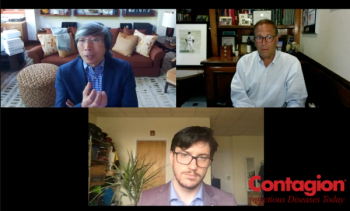
Dr. Adam Brufsky, an oncologist, compares viral and cancer immunity. Dr. Patrick Soon-Shiong connects the relation to COVID-19 vaccine research.

What should be anticipated in effectiveness and implication for the leading candidates.

Infectious disease specialists explain how long term international cooperation with impacted societies can help to stop the cycle of Ebola outbreaks.
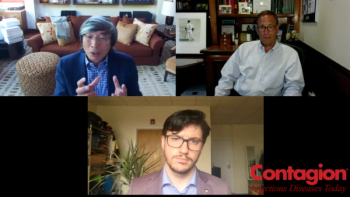
What happens if we don't get a COVID-19 vaccine? Patrick Soon-Shiong, MD, describes another potential route for research efforts, which could also supplement vaccine development.

One cardiologist speaks about what she witnessed in her NYC hospital including how the virus can be multi-organ and the development of COVID-19 diagnostic protocols.

Dr. Patrick Soon-Shiong, Chairman and CEO of ImmunityBio, explains why T-cell immunity could be an important metric when evaluating experimental COVID-19 vaccines.
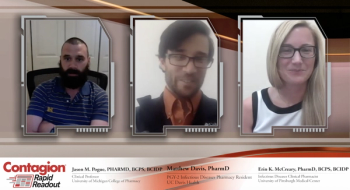
A discussion between providers on 3 studies related to the antiviral.
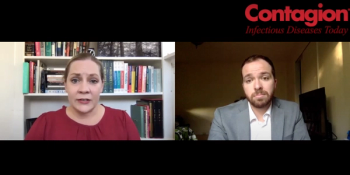
Angela Rasmussen, PhD, explains how preliminary findings for both candidates define their potential for preventing or lessening coronavirus.
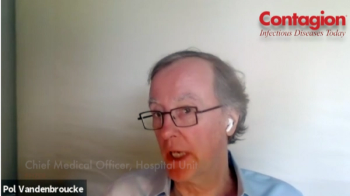
Dr. Pol Vandenbroucke describes the individual and collective risks associated with rising antibiotic resistance.

Dr. Pol Vandenbroucke talks about what makes antibiotic stewardship so important to clinicians and researchers.
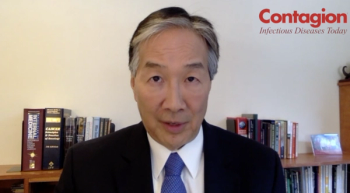
In this second installment of his interview, Howard Koh, MD, MPH, discusses the importance of providers and health care workers wearing face masks during their interactions with patients.

How might this new outbreak in Mbandaka differ from the recent outbreak in Kivu, a more conflict-prone region of the DRC?

A former Assistant Secretary of Health calls upon both to consider how a face mask mandate could mitigate transmission and mortality.

Dr. Pol Vandenbroucke explains how the development of health and civil society infrastructure around the world helps to slow antimicrobial resistance.

Dr. Pol Vandenbroucke describes the alarming global threat of antimicrobial resistance.
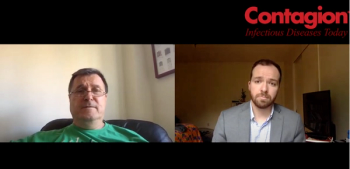
Perspective on how the anticoagulant could progress to human trials and potentially, marketing use for coronavirus prevention.
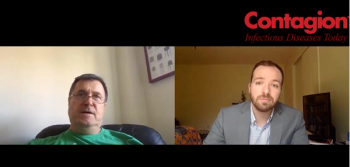
A discussion with an RPI investigator after promising early findings.

A modeling study from Imperial College shows the COVID-19 pandemic may have significant effect on mortality among other infectious disease patients.